Monoclonal Antibodies
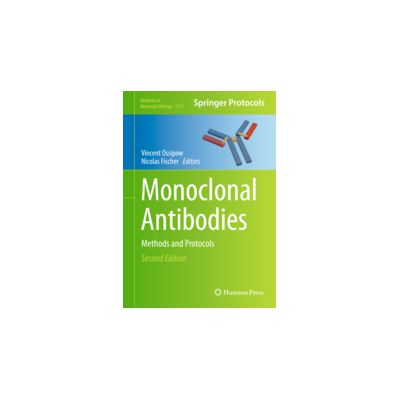
Preț: 567,00 lei
Disponibilitate: în stoc la furnizor
Autor: Ossipow, Vincent; Fischer, Nicolas
ISBN: 978-1-62703-991-8
Editura: Springer Nature
Anul publicarii: 2014
Ediția: 2
Pagini: 562 p. 108 illus.
Format: hardcover
Categoria: ALLERGY & CLINICAL IMMUNOLOGY
DESCRIERE
Offers modern approachse to generate high quality monoclonals
Provides step-by-step detail essential for reproducible results
Contains key notes and implementation advice from the experts
Monoclonal Antibodies: Methods and Protocols, Second Edition expands upon the previous edition with current, detailed modern approaches to isolate and characterize monoclonal antibodies against carefully selected epitopes. This edition includes new chapters covering the key steps to generate high quality monoclonals via different methods, from antigen generation to epitope mapping and quality control of the purified IgG. Chapters are divided into four parts corresponding to four distinct objectives. Part I covers monoclonal antibody generation, Part II deals with monoclonal antibody expression and purification, Part III presents methods for monoclonal antibody characterization and modification, and Part IV describes selected applications of monoclonal antibodies. Written in the highly successful Methods in Molecular Biology series format, chapters include introductions to their respective topics, lists of the necessary materials and reagents, step-by-step, readily reproducible laboratory protocols, and tips on troubleshooting and avoiding known pitfalls.
Authoritative and practical, Monoclonal Antibodies: Methods and Protocols, Second Edition provides crucial initial steps of monoclonal antibody generation and characterization with state-of-the art protocols.
Table of contents
Part I: Antibody Generation
1. Antigen Production for Monoclonal Antibody Generation
Giovanni Magistrelli, Pauline Malinge
2. Method for the Generation of Antibodies Specific for Site- and Post-translational Modifications
Hidemasa Goto and Masaki Inagaki
3. Immunization, Hybridoma Generation and Selection for Monoclonal Antibody Production
Hyung-Yong Kim, Alexander Stojadinovic, and Mina J. Izadjoo
4. Hybridoma Technology for the Generation of Rodent mAbs via Classical Fusion
Efthalia Chronopoulou, Alejandro Uribe-Benninghoff, Cindi R. Corbett, and Jody D. Berry
5. Generation of Rabbit Monoclonal Antibodies
Pi-ChenYam and Katherine L. Knight
6. Screening Hybridomas for Cell Surface Antigens by High-throughput Homogenous Assay and Flow Cytometry
Alejandro Uribe-Benninghoff, Teresa Cabral, Efthalia Chronopoulou, Jody D. Berry and Cindi R. Corbett
7. Screening and Subcloning of High Producer Transfectomas using Semi-solid Media and Automated Colony Picker
Suba Dharshanan and Cheah Swee Hung
8. Design and Generation of Synthetic Antibody Libraries for Phage Display
Gang Chen and Sachdev S. Sidhu
9. Selection and Screening using Antibody Phage Display Libraries
Patrick Koenig and Germaine Fuh
10. Yeast Surface Display for Antibody Isolation: Library Construction, Library Screening, and Affinity Maturation
James A. Van Deventer and Karl Dane Wittrup
11. Human B Cell Immortalization for Monoclonal Antibody Production
Joyce Hui-Yuen, Siva Koganti,and Sumita Bhaduri-McIntosh
12. Using Next-generation Sequencing for Discovery of High-frequency Monoclonal Antibodies in the Variable Gene Repertoires from Immunized Mice
Ulrike Haessler and Sai T. Reddy
Part II: Antibody Expression and Purification
13. Cloning, Reformatting, and Small Scale Expression of Monoclonal Antibody Isolated from Mouse, Rat, or Hamster Hybridoma
Jeremy Loyau and François Rousseau
14. Cloning of Recombinant Monoclonal Antibodies from Hybridomas in a Single Mammalian Expression Plasmid
Nicole Müller-Sienerth, Cécile Crosnier, Gavin J. Wright and Nicole Staudt
15. Monoclonal Antibody Purification by Ceramic Hydroxyapatite Chromatography
Larry J. Cummings, Russell G. Frost and Mark A. Snyder
16. Rapid Purification of Monoclonal Antibodies using Magnetic Microspheres
Pauline Malinge, Giovanni Magistrelli
17. Generation of Cell Lines for Monoclonal Antibody Production
Krista Alvin and Jianxin Ye
18. Expression and Purification of Recombinant Antibody Formats and Antibody Fusion Proteins
Martin Siegemund, Fabian Richter, Oliver Seifert, Felix Unverdorben and Roland E. Kontermann
19. Purification of Antibodies and Antibody Fragments using CaptureSelect Affinity Resins
Pim Hermans, Hendrik Adams, Frank Detmers
20. Reformatting of scFv antibodies into the scFv—Fc format and their Downstream Purification
Emil Bujak, Mattia Matasci, Dario Neri, and Sarah Wulhfard
Part III: Anitbody Characterization and Modification
21. Antibody V and C Domain Sequence, Structure, and Interaction Analysis with Special Reference to IMGT®
Eltaf Alamyar, Véronique Giudicelli, Patrice Duroux and Marie-Paule Lefranc
22. Measuring Antibody Affinities as well as the Active Concentration of Antigens Present on a Cell Surface
Palaniswami Rathanaswami
23. Determination of Antibody Structures
Robyn L. Stanfield
24. Affinity Maturation of Monoclonal Antibodies by Multi Site-Directed Mutagenesis
Hyung-Yong Kim, Alexander Stojadinovic, and Mina J. Izadjoo
25. Epitope Mapping with Membrane-bound Synthetic Overlapping Peptides
Terumi Midoro-Horiuti and Randall M. Goldblum
26. Epitope Mapping by Epitope Excision, Hydrogen/Deuterium Exchange and Peptide-Panning Techniques Combined with in silico Analysis
Nicola Clementi, Nicasio Mancini, Elena Criscuolo, Francesca Cappelletti, Massimo Clementi and Roberto Burioni
27. Fine Epitope Mapping Based on Phage Display and Extensive Mutagenesis of the Target Antigen
Gertrudis Rojas
28. Epitope Mapping with Random Phage Display Library
Terumi Midoro-Horiuti and Randall M. Goldblum
29. Epitope Mapping of Monoclonal and Polyclonal Antibodies using Bacterial Cell Surface Display
Anna-Luisa Volk, Francis Jingxin Hu, and Johan Rockberg
30. Ion Exchange High Performance Liquid Chromatography (IEX-HPLC)
Marie Corbier, Delphine Schrag and Sylvain Raimondi
31. Size Exclusion High Performance Liquid Chromatography (SEC-HPLC)
Delphine Schrag, Marie Corbier and Sylvain Raimondi
32. N-glycosylation Characterization by Liquid Chromatography with Mass Spectrometry
Song Klapoetke
33. Fc-Engineering of Antibodies and Antibody Derivatives by Primary Sequence Alteration and their Functional Characterization
Stefanie Derer, Christian Kellner, Thies Rösner, Katja Klausz, Pia Glorius, Thomas Valerius and Matthias Peipp
Part IV: Applications of Monoclonal Antibodies
34. Labeling and use of Monoclonal Antibodies in Immunofluorescence: Protocols for Cytoskeletal and Nuclear Antigens
Christoph R. Bauer
35. Generation and Use of Antibody Fragments for Structural Studies of Proteins Refractory to Crystallization
Stephen J. Stahl, Norman R. Watts, and Paul T. Wingfield
36. Antibody Array Generation and Use
Carl A.K. Borrebaeck and Christer Wingren
Provides step-by-step detail essential for reproducible results
Contains key notes and implementation advice from the experts
Monoclonal Antibodies: Methods and Protocols, Second Edition expands upon the previous edition with current, detailed modern approaches to isolate and characterize monoclonal antibodies against carefully selected epitopes. This edition includes new chapters covering the key steps to generate high quality monoclonals via different methods, from antigen generation to epitope mapping and quality control of the purified IgG. Chapters are divided into four parts corresponding to four distinct objectives. Part I covers monoclonal antibody generation, Part II deals with monoclonal antibody expression and purification, Part III presents methods for monoclonal antibody characterization and modification, and Part IV describes selected applications of monoclonal antibodies. Written in the highly successful Methods in Molecular Biology series format, chapters include introductions to their respective topics, lists of the necessary materials and reagents, step-by-step, readily reproducible laboratory protocols, and tips on troubleshooting and avoiding known pitfalls.
Authoritative and practical, Monoclonal Antibodies: Methods and Protocols, Second Edition provides crucial initial steps of monoclonal antibody generation and characterization with state-of-the art protocols.
Table of contents
Part I: Antibody Generation
1. Antigen Production for Monoclonal Antibody Generation
Giovanni Magistrelli, Pauline Malinge
2. Method for the Generation of Antibodies Specific for Site- and Post-translational Modifications
Hidemasa Goto and Masaki Inagaki
3. Immunization, Hybridoma Generation and Selection for Monoclonal Antibody Production
Hyung-Yong Kim, Alexander Stojadinovic, and Mina J. Izadjoo
4. Hybridoma Technology for the Generation of Rodent mAbs via Classical Fusion
Efthalia Chronopoulou, Alejandro Uribe-Benninghoff, Cindi R. Corbett, and Jody D. Berry
5. Generation of Rabbit Monoclonal Antibodies
Pi-ChenYam and Katherine L. Knight
6. Screening Hybridomas for Cell Surface Antigens by High-throughput Homogenous Assay and Flow Cytometry
Alejandro Uribe-Benninghoff, Teresa Cabral, Efthalia Chronopoulou, Jody D. Berry and Cindi R. Corbett
7. Screening and Subcloning of High Producer Transfectomas using Semi-solid Media and Automated Colony Picker
Suba Dharshanan and Cheah Swee Hung
8. Design and Generation of Synthetic Antibody Libraries for Phage Display
Gang Chen and Sachdev S. Sidhu
9. Selection and Screening using Antibody Phage Display Libraries
Patrick Koenig and Germaine Fuh
10. Yeast Surface Display for Antibody Isolation: Library Construction, Library Screening, and Affinity Maturation
James A. Van Deventer and Karl Dane Wittrup
11. Human B Cell Immortalization for Monoclonal Antibody Production
Joyce Hui-Yuen, Siva Koganti,and Sumita Bhaduri-McIntosh
12. Using Next-generation Sequencing for Discovery of High-frequency Monoclonal Antibodies in the Variable Gene Repertoires from Immunized Mice
Ulrike Haessler and Sai T. Reddy
Part II: Antibody Expression and Purification
13. Cloning, Reformatting, and Small Scale Expression of Monoclonal Antibody Isolated from Mouse, Rat, or Hamster Hybridoma
Jeremy Loyau and François Rousseau
14. Cloning of Recombinant Monoclonal Antibodies from Hybridomas in a Single Mammalian Expression Plasmid
Nicole Müller-Sienerth, Cécile Crosnier, Gavin J. Wright and Nicole Staudt
15. Monoclonal Antibody Purification by Ceramic Hydroxyapatite Chromatography
Larry J. Cummings, Russell G. Frost and Mark A. Snyder
16. Rapid Purification of Monoclonal Antibodies using Magnetic Microspheres
Pauline Malinge, Giovanni Magistrelli
17. Generation of Cell Lines for Monoclonal Antibody Production
Krista Alvin and Jianxin Ye
18. Expression and Purification of Recombinant Antibody Formats and Antibody Fusion Proteins
Martin Siegemund, Fabian Richter, Oliver Seifert, Felix Unverdorben and Roland E. Kontermann
19. Purification of Antibodies and Antibody Fragments using CaptureSelect Affinity Resins
Pim Hermans, Hendrik Adams, Frank Detmers
20. Reformatting of scFv antibodies into the scFv—Fc format and their Downstream Purification
Emil Bujak, Mattia Matasci, Dario Neri, and Sarah Wulhfard
Part III: Anitbody Characterization and Modification
21. Antibody V and C Domain Sequence, Structure, and Interaction Analysis with Special Reference to IMGT®
Eltaf Alamyar, Véronique Giudicelli, Patrice Duroux and Marie-Paule Lefranc
22. Measuring Antibody Affinities as well as the Active Concentration of Antigens Present on a Cell Surface
Palaniswami Rathanaswami
23. Determination of Antibody Structures
Robyn L. Stanfield
24. Affinity Maturation of Monoclonal Antibodies by Multi Site-Directed Mutagenesis
Hyung-Yong Kim, Alexander Stojadinovic, and Mina J. Izadjoo
25. Epitope Mapping with Membrane-bound Synthetic Overlapping Peptides
Terumi Midoro-Horiuti and Randall M. Goldblum
26. Epitope Mapping by Epitope Excision, Hydrogen/Deuterium Exchange and Peptide-Panning Techniques Combined with in silico Analysis
Nicola Clementi, Nicasio Mancini, Elena Criscuolo, Francesca Cappelletti, Massimo Clementi and Roberto Burioni
27. Fine Epitope Mapping Based on Phage Display and Extensive Mutagenesis of the Target Antigen
Gertrudis Rojas
28. Epitope Mapping with Random Phage Display Library
Terumi Midoro-Horiuti and Randall M. Goldblum
29. Epitope Mapping of Monoclonal and Polyclonal Antibodies using Bacterial Cell Surface Display
Anna-Luisa Volk, Francis Jingxin Hu, and Johan Rockberg
30. Ion Exchange High Performance Liquid Chromatography (IEX-HPLC)
Marie Corbier, Delphine Schrag and Sylvain Raimondi
31. Size Exclusion High Performance Liquid Chromatography (SEC-HPLC)
Delphine Schrag, Marie Corbier and Sylvain Raimondi
32. N-glycosylation Characterization by Liquid Chromatography with Mass Spectrometry
Song Klapoetke
33. Fc-Engineering of Antibodies and Antibody Derivatives by Primary Sequence Alteration and their Functional Characterization
Stefanie Derer, Christian Kellner, Thies Rösner, Katja Klausz, Pia Glorius, Thomas Valerius and Matthias Peipp
Part IV: Applications of Monoclonal Antibodies
34. Labeling and use of Monoclonal Antibodies in Immunofluorescence: Protocols for Cytoskeletal and Nuclear Antigens
Christoph R. Bauer
35. Generation and Use of Antibody Fragments for Structural Studies of Proteins Refractory to Crystallization
Stephen J. Stahl, Norman R. Watts, and Paul T. Wingfield
36. Antibody Array Generation and Use
Carl A.K. Borrebaeck and Christer Wingren
Categorii de carte
-Comandă specială
-Edituri
-Promo
-Publicaţii Callisto
-Cărţi noi
-- 992,25 leiPRP: 1102,50 lei
- 349,65 leiPRP: 388,50 lei
- 1207,50 lei
Promoţii
-- 992,25 leiPRP: 1102,50 lei
- 349,65 leiPRP: 388,50 lei
- 976,50 leiPRP: 1050,00 lei



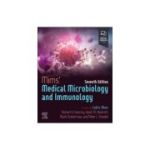
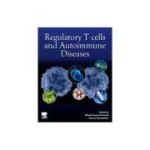
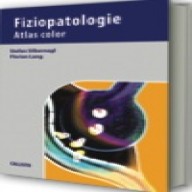


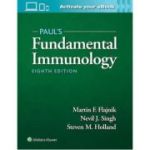

REVIEW-URI